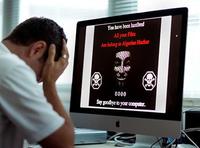-
Growing cybersecurity threats offer opportunities for cybersecurity businesses
A 2013 report from the U.S. Computer Emergency Readiness Team(US-CERT) noted that the number of cyberattacks reported by federal agencies had skyrocketed 782 percent since 2006, to nearly 49,000, in 2012. Today, the figure is much higher. The increasing threat of cyberattacks from domestic and foreign actors has opened up opportunities for cybersecurity professionals, many of whom held positions with the U.S. military or intelligence agencies. For the private sector, cybersecurity spending is expected to reach $71.1 billion this year, and expected to grow about 9 percent annually through 2016.
-
-
DOJ’s new cyber unit to provide legal guidance on electronic surveillance
The Justice Department is creating a cybersecurity unit within its Computer Crime & Intellectual Property Section (CCIPS) to provide legal guidance on electronic surveillance investigations.The unit will also work with Congress on cybersecurity legislation and focus on cybercrime prevention.
-
-
China says U.S. does not appreciate China’s own vulnerability to cyberattacks
At the seventh annual China-U.S. Internet Industry Forum held on 2-3 December, Lu Wei, minister of China’s Cyberspace Affairs Administration, which manages Internet information in China, urged U.S. officials and the private sector to stop claiming Chinese cyberespionage against U.S. systems and instead understand China’s Internet information policies. China has become the world’s largest Internet market with over four million websites, 600 million Web users, and four of the world’s top ten Internet firms.
-
-
FBI cautions U.S. firms of hackers trying to overwrite companies’ data files

On Monday, several cybersecurity officers of U.S. businesses received a five-page “flash” warning from the FBI to be cautious of hackers that may use malware to override all data on hard drives of computers, including the master boot record, which prevents them from booting up. “The overwriting of the data files will make it extremely difficult and costly, if not impossible, to recover the data using standard forensic methods,” the warning read.
-
-
Hackers well-versed in Wall Street vernacular hack publicly traded companies
Security firm FireEye’s recent reporton a group of hackers who have been infiltrating e-mail correspondence from more than 100 organizations, differs from the company’s previous reportson cyber criminals operating from China or Russia. This time, the hackers are based in North America or Western Europe, and are well-versed in Wall Street vernacular. The hackers, who FireEye named “FIN4” because they are one of many groups that hack for financial gain, targeted mostly publicly traded healthcare or pharmaceutical companies, along with their advisory firms, in pursuit of information that could affect global financial markets.
-
-
Online tools help users adopt better privacy practices
Research shows a growing concern for online privacy, but Internet users give up personal information every day in exchange for the convenience and functionality of a variety of online services. Online privacy is distinct from online security, which encompasses efforts to mitigate the theft of personal information. Most violations of online privacy are not illegal but rather the results of tacit consumer consent. The new Privacy Helper mobile app teaches users about the features on their phones that can affect privacy. The key to Privacy Helper, its developers say, is its flexibility in giving users better control over how they share personal information.
-
-
U.S. Army creates a Cyber branch

Soldiers who want to defend the nation in cyberspace, as part of the U.S. Army’s newest and most technologically advanced career field, now have an Army branch to join that will take its place alongside infantry, artillery, and the other Army combat arms branches. Army Secretary John McHugh and Chief of Staff Gen. Raymond Odierno approved the creation of the Cyber branch in September. “The establishment of a Cyber Branch shows how important and critical the cyber mission is to our Army, and allows us to focus innovative recruiting, retention, leader development, and talent management needed to produce world-class cyberspace professionals,” said Lt. Gen. Edward Cardon, the commanding general of Army Cyber Command.
-
-
Internet security market to reach $42.8 billion globally by 2020
According to a new report by Allied Market Research, the global Internet security market is expected to reach $42.8 billion by 2020, registering a CAGR of 8.1 percent during 2014-2020. The market, driven by demand for software solutions, would experience a shift toward the adoption of cloud-based systems. About 80 percent of the top companies today identify with cloud-based security services which have become a prominent market trend.
-
-
A malware more sophisticated than Stuxnet discovered
Security experts at Symantechave discovered the world’s most sophisticated computer malware, Regin. Thought to have been created by a Western intelligence agency, and in many respects more advanced than Stuxnet — which was developed by the U.S. and Israeli government in 2010 to hack the Iranian nuclear program — Regin has targeted Russian, Saudi Arabian, Mexican, Irish, and Iranian Internet service providers and telecoms companies. “Nothing else comes close to this … nothing else we look at compares,” said one security expert.
-
-
Iran may resume cyberattacks on U.S. if nuclear deal is not reached
A failure for the United States to reach a nuclear deal with Iran could result in more cyberattacks against U.S. companies, House Intelligence Committeechairman Mike Rogers (R-Michigan) said. Cyberattacks by Tehran declined dramatically after the United States, other permanent members of the Security Council, and Germany agreed to an interim nuclear deal with Iran in 2013, but should the parties fail to reach a permanent nuclear deal by the newly set March 2015 and July 2015 deadlines, financial firms, oil and gas companies, and water filtration systems could be targets of malware from Iran’s cyber army.
-
-
Cyber experts divided over the scope of damage of a cyberattack on U.S.
Citing the risks of lack of preparation against future cyberattacks and the absence of security infrastructure, a new report urges across the board updates in the domain of cybersecurity. Most of the experts interviewed for the report pointed to the Stuxnet malware, which damaged Iranian nuclear-enrichment centrifuges and other nuclear-related machinery in 2010, as an example of the sort of future attacks that could disable and destroy vital infrastructure such as power grids, air-traffic controls, and banking institutions.
-
-
Scientist develops uncrackable security code for nuclear weapons
Nuclear weapons exist, so control of nuclear weapons is essential. Intrinsic Use Control (IUC) is a concept which is capable of providing improved quantifiable safety and use control within a nuclear weapon. As a basic concept, use control is best accomplished in the weapon itself rather than depending on administrative controls, fences, and guards. Using established technology, IUC uses passive use control to resist any attacks or unauthorized use of a weapon at either the component or the fully assembled levels.
-
-
Pentagon mulls “byte for a byte” cyber retaliatory operations
Much has been made of the phrase “an eye for an eye” throughout history, and it is beginning to appear that the oft-used motto will extend to the new fields of cyber warfare as well.This “approach is something our adversaries will readily understand,” one analyst writes. “If they escalate, we escalate. They know they will lose because we have far more cyber resources to draw on than they have, and we can cause real harm if they mess with us.”
-
-
NSA director: China and “one or two” other nations can damage U.S. critical infrastructure
Adm. Michael Rogers, director of the National Security Agency and head of U.S. Cyber Command, told lawmakers yesterday that China and “one or two” other countries are capable of mounting cyberattacks which would paralyze the U.S electric grid and other critical infrastructure systems across the country. A cyberattacks of such scope has been discussed in the past – it was even dubbed a “cyber Pearl Harbor” – but Rogers was the first high official to confirm that such a crippling attack on the United States was not a mere speculation. Rogers said U.S. adversaries are conducting electronic “reconnaissance” on a regular basis so that they will be well-positioned to damage and disrupt the industrial control systems which run chemical facilities, nuclear power plants, water treatment facilities, dams, and much more.
-
-
New study shows people ignore online warnings

You are your own worst enemy when it comes to online security. Say you ignored one of those “this Web site is not trusted” warnings and it led to your computer being hacked. How would you react? Would you: (A) Quickly shut down your computer? (B) Yank out the cables? (C) Scream in cyber terror? Researchers report that that for a group of college students participating in a research experiment, all of the above were true. These gut reactions (and more) happened when a trio of researchers simulated hacking into study participants’ personal laptops.
-
More headlines
The long view
Researchers Develop AI Agent That Solves Cybersecurity Challenges Autonomously
New framework called EnIGMA demonstrates improved performance in automated vulnerability detection using interactive tools.
